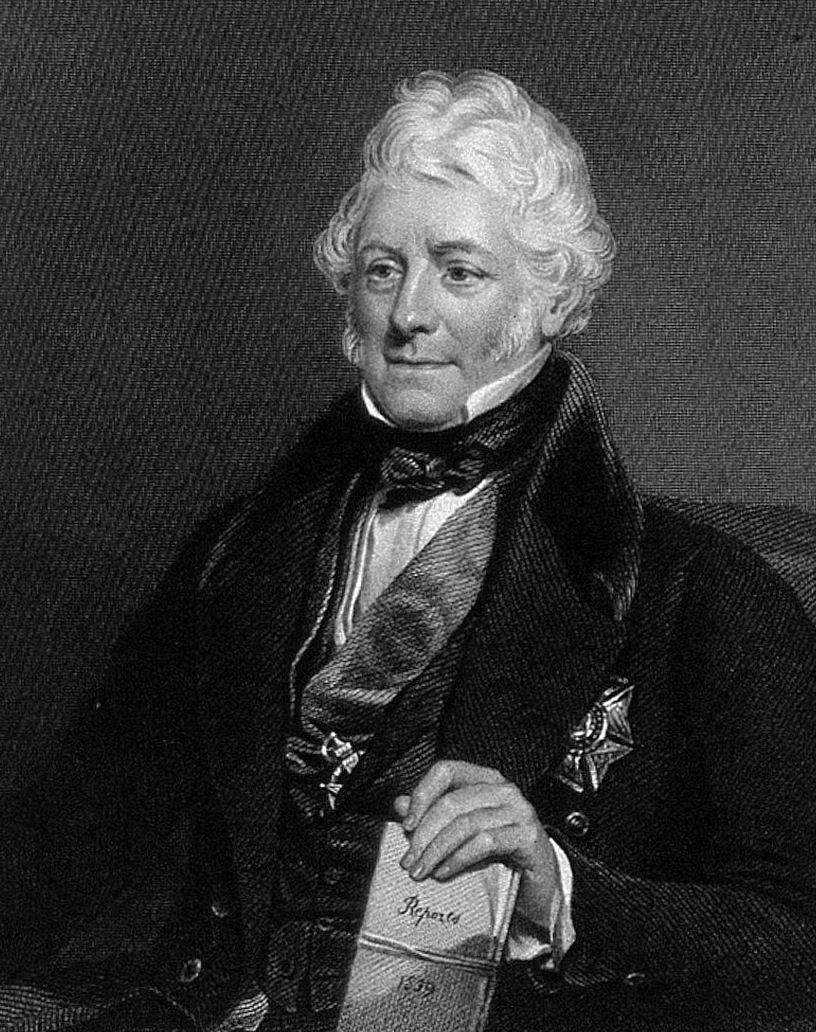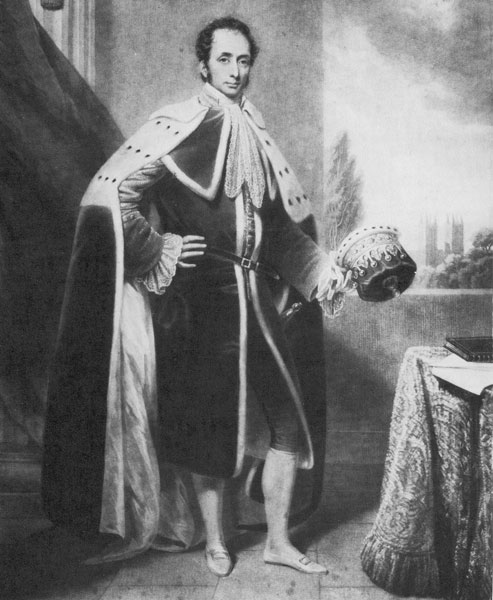|
Medico-Botanical Society Of London
The Medico-Botanical Society of London (or the Royal Medico-Botanical Society of London) was a society founded in 1821 by John Frost, as director, for the avowed purpose of "investigating, by means of communications, lectures, and experiments, the medicinal properties of plants ... of promoting the study of the vegetable '' materia medica'' of all countries ... and of cultivating medical plants." The Society's meetings were held at 32, Sackville Street. The first president was William George Maton, MD, FRS. His successors as president were Robert Bree, MD, FRS, the surgeon Sir James McGrigor, FRS, and Philip Henry Stanhope, 4th Earl Stanhope Philip Henry Stanhope, 4th Earl Stanhope FRS (7 December 1781 – 2 March 1855), was an English aristocrat, chiefly remembered for his role in the Kaspar Hauser case during the 1830s. Origins He was the eldest son and heir of Charles Stanhope, 3 ..., FRS. In 1830 the Society abolished its office of Director and expelled John Frost becaus ... [...More Info...] [...Related Items...] OR: [Wikipedia] [Google] [Baidu] |
John Frost (physician)
Dr John Frost FRSE FSA (1803–1840) was a short-lived but influential physician and botanist who founded the Medico-Botanical Society of London, studying and cataloguing the medicinal properties of plants. He was a controversial and flamboyant figure of the early 19th century. Life He was born in 1803 in the Charing Cross area of London. He was born two months premature and a twin and was a delicate child. He attended school in Langley, Berkshire. He was then sent as an apprentice to Dr Wright, the apothecary at Bethlem Royal Hospital. In 1821 he left and resolved to establish a national study of Materia Medica, leading to his foundation of the Medico-Botanical Society of London. Having been introduced by Dr Bree to King George IV, he was placed as botanical tutor to Prince George of Cumberland and Cambridge (later to become George V of Hanover). Dr Bree also introduced Frost to Sir James McGrigor of the army medical board, who was elected first president of the Medico-Botan ... [...More Info...] [...Related Items...] OR: [Wikipedia] [Google] [Baidu] |
Sackville Street, London
Sackville Street is a street in central London which today is mainly composed of offices and the rears of retail premises, but once was the home to several important medical figures. Location The street runs between Vigo Street in the north and Piccadilly in the south. It has no other exits. History The land on which Sackville Street stands, like Albany and Burlington House, was formerly known as Stone Conduit Close. It was bounded on one side by Penniless Bank and on the other by Swallow Close. It passed into Crown ownership in 1536 and formerly belonged to the Abbot and Convent of Abingdon. The land was then much divided, leases granted and ended and ownership changed several times."Sackville Street" ''Survey of London'', Volumes 31 and 32: St James Westminster, Part 2 (1963), pp. 342-366. Retrieved 6 June 2014. [...More Info...] [...Related Items...] OR: [Wikipedia] [Google] [Baidu] |
William George Maton
William George Maton M.D. (31 January 1774 – 30 March 1835) was an English physician, a society doctor who became associated with the British royal family. He published on natural history and antiquarian topics. Life The son of George Maton, a wine merchant, was born at Salisbury, 31 January 1774. He attended Salisbury grammar school, and in July 1790 entered The Queen's College, Oxford. While there he became interested in botany, and encountered John Sibthorp. On 18 March 1794 Maton was elected a fellow of the Linnean Society, came to know Sir James Edward Smith the botanist. He became vice-president of the society; and the members showed their regard for him by calling a woodpecker, a shell-fish, and a genus of plants after him. In that year he graduated B.A. at Oxford, and in 1797 M.A. Maton began medical study at Westminster Hospital, and 11 July 1798 graduated M.B. at Oxford, and 15 April 1801 M.D. He was elected a fellow of the College of Physicians of London 30 Septem ... [...More Info...] [...Related Items...] OR: [Wikipedia] [Google] [Baidu] |
Robert Bree
Robert Bree, MD (1759–1839) was an English physician. Biography Bree was born at Solihull, Warwickshire, in 1759. He was educated at Coventry and at University College, Oxford, where he graduated on 6 April 1775, and took his B.A. degree on 10 November 1778, and, having studied medicine at Edinburgh, proceeded M.A. on 10 July 1781. He was admitted, 31 July 1781, an extra-licentiate of the College of Physicians; took his bachelor's degree in medicine on 4 July 1782, and that of M.D. on 12 July 1791. He had first settled at Northampton, and was appointed physician to the general infirmary in that town, which after a short stay he left for Leicester, to the infirmary of which he became physician. An obstinate attack of asthma caused in 1793 a temporary retirement from his profession. In 1794, he accepted the command of a company in a regiment of militia, and in 1796 settled at Birmingham, where he was appointed in March 1801 physician to the General Hospital. Bree was consulted fo ... [...More Info...] [...Related Items...] OR: [Wikipedia] [Google] [Baidu] |
James McGrigor
Sir James McGrigor, 1st Baronet, (9 April 1771 – 2 April 1858) was a Scottish physician, military surgeon and botanist, considered to be the man largely responsible for the creation of the Royal Army Medical Corps. He served as Rector of the University of Aberdeen. Early life McGrigor was the son of Colquhoun McGrigor, a clothing merchant from Aberdeen, and his wife Anne Grant. McGrigor was born in Cromdale, Inverness-shire, and educated at Aberdeen Grammar School for five years, and graduated from the University of Aberdeen in 1788. He received medical training at the University of Edinburgh beginning in September 1789. Army surgeon Spain and Portugal In 1811, he was appointed Surgeon-General for the Duke of Wellington's army in Spain and Portugal during the Peninsular Wars (1808–14). Director-General McGrigor returned to Britain before the Battle of Waterloo, and was knighted (1814). He went on to serve as Director-General of the Army Medical Service (1815–51) and d ... [...More Info...] [...Related Items...] OR: [Wikipedia] [Google] [Baidu] |
Philip Henry Stanhope, 4th Earl Stanhope
Philip Henry Stanhope, 4th Earl Stanhope FRS (7 December 1781 – 2 March 1855), was an English aristocrat, chiefly remembered for his role in the Kaspar Hauser case during the 1830s. Origins He was the eldest son and heir of Charles Stanhope, 3rd Earl Stanhope (1753–1816), by his second wife, Louisa Grenville (1758–1829), daughter and sole heiress of the Hon. Henry Grenville, Governor of Barbados in 1746 and ambassador to the Ottoman Porte in 1762, a younger brother of Richard Temple-Nugent-Brydges-Chandos-Grenville, 1st Duke of Buckingham and Chandos. Career Using his father's courtesy title Viscount Mahon, he served as a Whig Member of Parliament for Wendover from 1806 to 1807, for Kingston upon Hull from 1807 to 1812, and for Midhurst from 1812 until his succession to the peerage on 15 December 1816, when he took his seat in the House of Lords. He shared his father's scientific interests and was elected a Fellow of the Royal Society on 8 January 1807 and was a preside ... [...More Info...] [...Related Items...] OR: [Wikipedia] [Google] [Baidu] |
Charles Babbage
Charles Babbage (; 26 December 1791 – 18 October 1871) was an English polymath. A mathematician, philosopher, inventor and mechanical engineer, Babbage originated the concept of a digital programmable computer. Babbage is considered by some to be " father of the computer". Babbage is credited with inventing the first mechanical computer, the Difference Engine, that eventually led to more complex electronic designs, though all the essential ideas of modern computers are to be found in Babbage's Analytical Engine, programmed using a principle openly borrowed from the Jacquard loom. Babbage had a broad range of interests in addition to his work on computers covered in his book ''Economy of Manufactures and Machinery''. His varied work in other fields has led him to be described as "pre-eminent" among the many polymaths of his century. Babbage, who died before the complete successful engineering of many of his designs, including his Difference Engine and Analytical Eng ... [...More Info...] [...Related Items...] OR: [Wikipedia] [Google] [Baidu] |
Medical Associations Based In The United Kingdom
Medicine is the science and practice of caring for a patient, managing the diagnosis, prognosis, prevention, treatment, palliation of their injury or disease, and promoting their health. Medicine encompasses a variety of health care practices evolved to maintain and restore health by the prevention and treatment of illness. Contemporary medicine applies biomedical sciences, biomedical research, genetics, and medical technology to diagnose, treat, and prevent injury and disease, typically through pharmaceuticals or surgery, but also through therapies as diverse as psychotherapy, external splints and traction, medical devices, biologics, and ionizing radiation, amongst others. Medicine has been practiced since prehistoric times, and for most of this time it was an art (an area of skill and knowledge), frequently having connections to the religious and philosophical beliefs of local culture. For example, a medicine man would apply herbs and say prayers for healing, or an an ... [...More Info...] [...Related Items...] OR: [Wikipedia] [Google] [Baidu] |
Defunct Clubs And Societies Of The United Kingdom
{{Disambiguation ...
Defunct (no longer in use or active) may refer to: * ''Defunct'' (video game), 2014 * Zombie process or defunct process, in Unix-like operating systems See also * * :Former entities * End-of-life product * Obsolescence Obsolescence is the state of being which occurs when an object, service, or practice is no longer maintained or required even though it may still be in good working order. It usually happens when something that is more efficient or less risky r ... [...More Info...] [...Related Items...] OR: [Wikipedia] [Google] [Baidu] |
1821 Establishments In England
Eighteen or 18 may refer to: * 18 (number), the natural number following 17 and preceding 19 * one of the years 18 BC, AD 18, 1918, 2018 Film, television and entertainment * ''18'' (film), a 1993 Taiwanese experimental film based on the short story ''God's Dice'' * ''Eighteen'' (film), a 2005 Canadian dramatic feature film * 18 (British Board of Film Classification), a film rating in the United Kingdom, also used in Ireland by the Irish Film Classification Office * 18 (''Dragon Ball''), a character in the ''Dragon Ball'' franchise * "Eighteen", a 2006 episode of the animated television series ''12 oz. Mouse'' Music Albums * ''18'' (Moby album), 2002 * ''18'' (Nana Kitade album), 2005 * '' 18...'', 2009 debut album by G.E.M. Songs * "18" (5 Seconds of Summer song), from their 2014 eponymous debut album * "18" (One Direction song), from their 2014 studio album ''Four'' * "18", by Anarbor from their 2013 studio album '' Burnout'' * "I'm Eighteen", by Alice Cooper commonly r ... [...More Info...] [...Related Items...] OR: [Wikipedia] [Google] [Baidu] |




_School_-_Charles_Babbage_(1792–1871)_-_814168_-_National_Trust.jpg)
